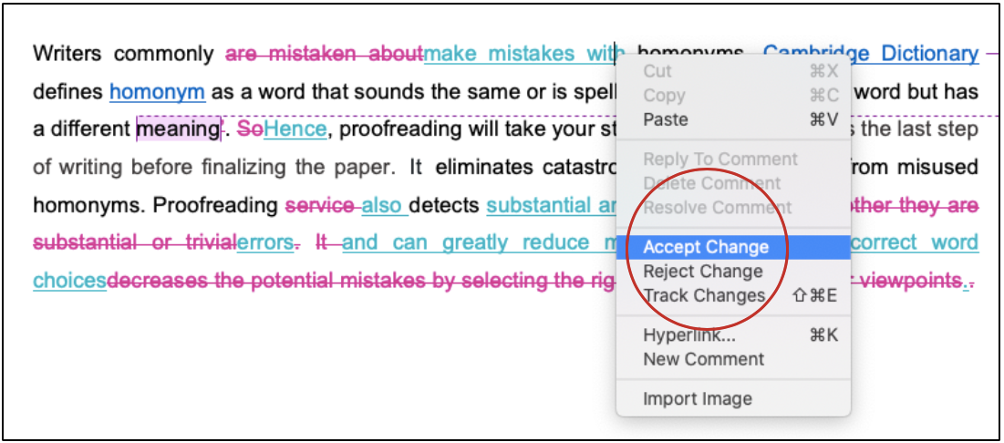The central tendency, mean, median, and mode depict where most data points concentrate, while variability illustrates how far they are. It is exceedingly crucial because the amount of variability demonstrates the generalization one can make from the sample to the population. Low variability is desirable because it implies that predicting information about the population using sample data is well-justified. Contrarily, high variability illustrates decreased consistency, making data predictions harder.

Variability is about how far data points are from each other and the mean. In addition to measures of central tendency, variability measures are other critical, descriptive statistics epitomizing your data.
Variability can also be expressed as spread, scatter, or dispersion. We use the following variables to measure the variability. The first measure is the range, the difference between the highest and lowest values in a given data set. However, the interquartile range yields the middle half of the distribution. In other words, it is the difference between the upper and lower quartiles. The standard deviation is the most used variability, calculated by determining the average distance from the mean. Variance is a derived measure and can be calculated by taking the square of the standard deviation.
The central tendency, mean, median, and mode depict where most data points concentrate, while variability illustrates how far they are. It is exceedingly crucial because the amount of variability demonstrates the generalization one can make from the sample to the population.
Low variability is desirable because it implies that predicting information about the population using sample data is well-justified. Contrarily, high variability illustrates decreased consistency, making data predictions harder.
Some data sets may have the same central tendency with different levels of variability. The reverse can also be true. Suppose you know the central tendency or the variability but not both; you cannot interpret the other. Thus, they both complete your data assessment.
The range depicts the difference between the maximum and minimum values in the distribution. Even though it is easily calculated, it may not reflect the overall trend in the data because it only considers the highest and lowest values in the data set, not yielding any information on the other values in the data set.
Theinterquartile range differs from the range in that it gives you the variation in the middle of your distribution. It tells us more about the distribution because it contains half of the values in the middle. After calculating the first and third quartile in your data set, you can determine the interquartile range by subtracting the higher value from the lower one. The first quartile includes the first 25% of the values, while the third quartile encompasses the last 25%. Even though the interquartile range only involves the difference between the two values, it is more robust against outliers because they portray the middle half of the data set. Therefore, the interquartile range is reliable in both normal and skewed distributions.
For every distribution, afive-number summary can be calculated. It includes the minimum, the lower quartile, the median, the upper quartile, and the maximum. The five-number summaries can be readily depicted with box and whisker plots.
The standard deviation shows the average amount of variability in the dataset. Therefore, it illustrates, on average, the distance of each score lies from the mean. As the standard deviation, so is the variability in the data set.
Variance demonstrates the degree of spread for a given data set, suggesting that a greater spread would imply a larger variation for the mean. The varianceis calculated by squaring the standard deviation. It has a different unit from the standard deviation, making its interpretation more challenging. However, it is beneficial for some crucial analyses, such as Analysis of Variance, where the whole analysis depends on the ratio between-group and within-group variance.
Determining the ideal measure of variability depends on the level of measurement and distribution. For the data measured at an ordinal level, the appropriate measures of variability include the range and interquartile range. In contrast, the standard deviation and variance can also be calculated at interval and ratio levels.
All measures can be employed for normal distributions. The standard deviation and variance should be preferred because they consider all the data in a set but simultaneously suggest that outliers can affect them. However, the interquartile range is most reliable when the distribution is skewed because the outliers do not affect this variable.
Best Edit & Proof expert editors and proofreaders focus on offering papers with proper tone, content, and style of academic writing, and also provide an upscale editing and proofreading service for you. If you consider our pieces of advice, you will witness a notable increase in the chance for your research manuscript to be accepted by the publishers. We work together as an academic writing style guide by bestowing subject-area editing and proofreading around several categorized writing styles. With the group of our expert editors, you will always find us all set to help you identify the tone and style that your manuscript needs to get a nod from the publishers.

You can also avail of our assistance if you are looking for editors who can format your manuscript, or just check on the particular styles for the formatting task as per the guidelines provided to you, e.g., APA, MLA, or Chicago/Turabian styles. Best Edit & Proof editors and proofreaders provide all sorts of academic writing help, including editing and proofreading services, using our user-friendly website, and a streamlined ordering process.
Visit our order page if you want our subject-area editors or language experts to work on your manuscript to improve its tone and style and give it a perfect academic tone and style through proper editing and proofreading. The process of submitting a paper is very easy and quick. Click here to find out how it works.
Our pricing is based on the type of service you avail of here, be it editing or proofreading. We charge on the basis of the word count of your manuscript that you submit for editing and proofreading and the turnaround time it takes to get it done. If you want to get an instant price quote for your project, copy and paste your document or enter your word count into our pricing calculator.
Contact us to get support with academic editing and proofreading. We have a 24/7 active live chat mode to offer you direct support along with qualified editors to refine and furbish your manuscript.
Follow us on Twitter, LinkedIn, Facebook, Instagram, and Medium.
For more posts, click here.
This article explains how to determine variablity in a dataset. To give you an opportunity to practice proofreading, we have left a few spelling, punctuation, or grammatical errors in the text. See if you can spot them! If you spot the errors correctly, you will be entitled to a 20% discount.
How to Determine Central Tendency
19.02.2023
ANOVA vs MANOVA: Which Method to Use in Dissertations?
30.01.2023
How to Specify Study Variables in Research Papers?
14.01.2023
Population vs Sample | Sampling Methods for a Dissertation
14.01.2023
7 Issues to Avoid That may Dent the Quality of Thesis Writing
18.12.2022
How to Ensure the Quality of Academic Writing in a Thesis and Dissertation?
04.12.2022

Embarking on an academic work is obligatory for every college student who wants to graduate one day. Such an academic work is considered one of the final and most fundamental practices in the curriculum for college students. Some students who embark on their academic writing projects may not actually be aware of the mistakes (whether trivial or vital) that may delay their graduation or cause them to lose marks, or points in their assignments. So, college students should pay attention to these tips to avoid making the errors herein discussed.
Continue Reading
As a student or anyone in the academic field, you need to know about your text even before you start writing it. In academic writing, there are so many rules, regulations, styles, and guides that you need to follow. Naturally, to write a good piece of work, you need to make sure that you know about what you are writing. Similarly, it is important to know about the different types of academic writing before you get started on it. This guide discusses the various types of scholarly writing.
Continue Reading
As a college student in the USA, the UK, Canada, or anywhere else, you may have a wealth of opportunities for freelance work due to your connections. Freelancing can be an excellent way to create an income stream and expand your writing portfolio. Take early advantage of your education while you're still in school and start a freelancing career. This handout provides an easy guide for freelance opportunities for college students.
Continue Reading
If you are just starting with academic writing, you may feel overwhelmed by the pressure that academic writing usually imposes. However, as demanding as it may seem, you can easily master academic writing if you know the right rules to follow. This article particularly reaches out to beginners in academic writing to help you master this form of writing. Here, we will go through the basic language rules that apply to all kinds of academic writing (generally) and will help you master it in no time.
Continue Reading
A narrative essay is, to an extent, an anomaly in academic writing. Unlike an expository essay, it does not dissuade academic writers from exercising their creative faculties. Nor does it require them to conduct extensive research and be strictly objective in their writing. However, narrative pieces still require academic writers to abide by the fundamental linguistic requirements of academic writing, such as excluding any instances of slang and other “informal” linguistic elements. This article expounds upon the atypical nature of a narrative essay and divulges the steps to write one.
Continue Reading
The cover letter acts as the first impression that the authors or their work will have on the editor. It can be contemplated as the “sales pitch” of the conducted research and the submitted work. It, therefore, deserves meticulous attention and should never be written half-heartedly. This article discusses how to write a persuasive cover letter for journal submission and presents an easy-to-follow rubric that will help you draft an impeccable cover letter.
Continue Reading
We may have qualitative, quantitative, and mixed methods in dissertations. This blog will elaborate on quantitative dissertations, qualitative dissertations, and mixed methods dissertations by addressing their similarities and differences.
Continue Reading